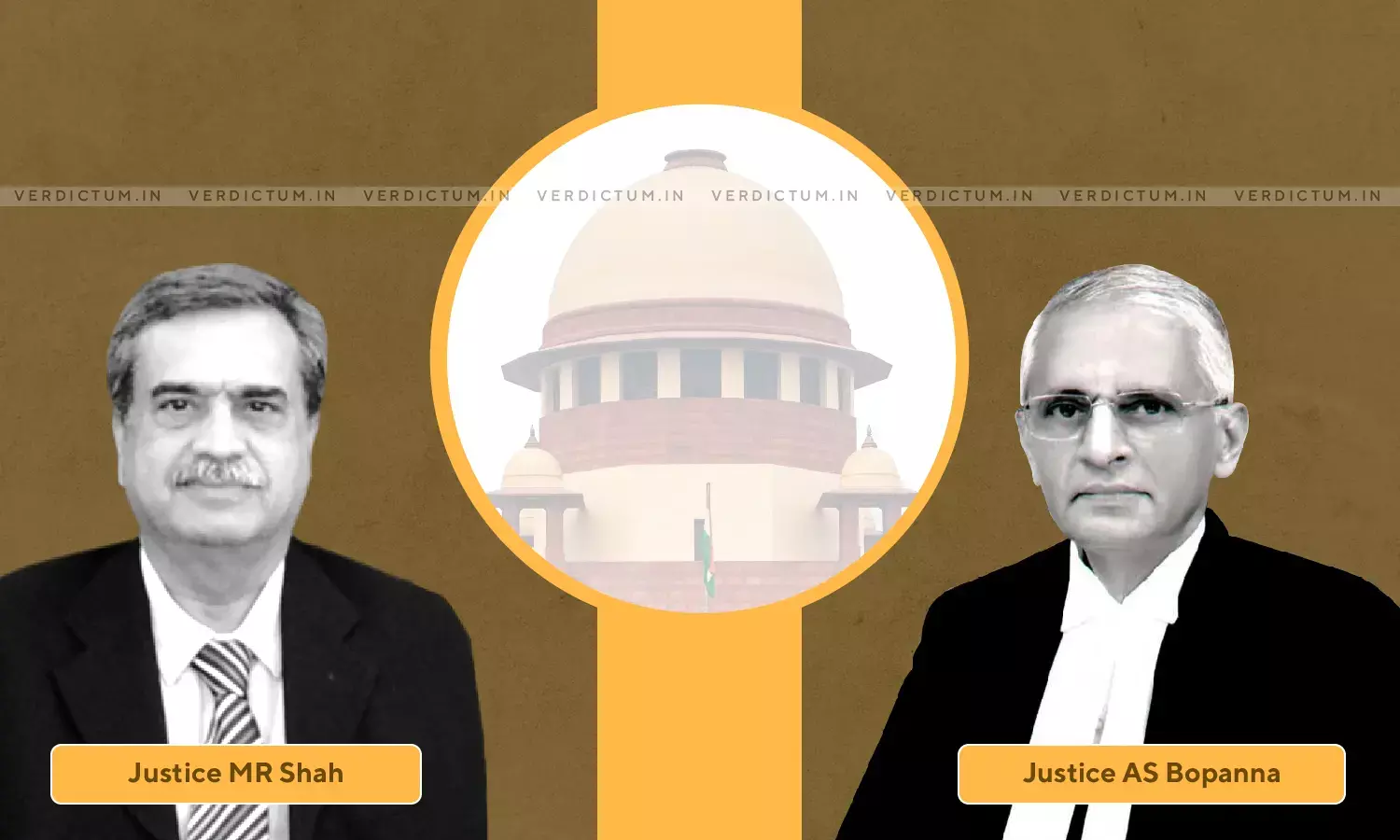Lok Adalat Has No Jurisdiction To Decide Cases On Merits: Supreme Court
A two-judge Bench of Justice MR Shah and Justice AS Bopanna has held that if parties are not able to arrive at a compromise or settlement, the Lok Adalat would have no jurisdiction to decide such a case on merits.
The Court further observed, "the Lok Adalat has to return the case to the Court from which the reference has been received for disposal in accordance with law and in any case."
An appeal was preferred against the judgment of Madhya Pradesh High Court which declined to restore a Writ Petition after the Lok Adalat entered into the merits of the case and dismissed the Writ Petition on merits.
In the case, the Appellant had filed a restoration application before the High Court contending that the order passed by the Lok Adalat is beyond its jurisdiction and the same is not sustainable. However, the High Court dismissed the application.
It was contended by the Appellant that as per Sections 19(5), 20(3), and 20(5) of the Legal Services Authority Act Lok Adalat has jurisdiction only to arrive at a compromise or a settlement between the parties to a dispute and did not have jurisdiction to enter into merits of the case and decide the matter on merits if no settlement is arrived at between the parties.
While the Respondent contended that once the matter was placed before the Lok Adalat with the consent of parties, the entire matter would be at large before it.
The issue which was dealt with by the Court was whether the Lok Adalat held by the High Court, it was open for the Adalat to enter into the merits of the Writ Petition and dismiss the same on merits when no settlement was arrived at between the parties.
The Apex Court after referring to the relevant provisions of the Legal Services Authority Act held, "The jurisdiction of the Lok Adalat would be to determine and to arrive at a compromise or a settlement between the parties to a dispute and once the aforesaid settlement / compromise fails and no compromise or settlement could be arrived at between the parties, the Lok Adalat has to return the case to the Court from which the reference has been received for disposal in accordance with law and in any case, the Lok Adalat has no jurisdiction at all to decide the matter on merits once it is found that compromise or settlement could not be arrived at between the parties."
The Court held that the impugned order passed by the Lok Adalat deserved to be set aside and quashed and was unsustainable.
"The submission made by the learned counsel appearing on behalf of the respondent that once the matter was placed before the Lok Adalat with consent, thereafter the entire matter is at large before the Lok Adalat and, therefore, the Lok Adalat is justified in disposing the matter on merits has no substance and the same is required to be rejected outright," the Bench opined.
In the light of these observations, the Court allowed the appeal and set aside and quashed the impugned order of Lok Adalat, Madhya Pradesh High Court, and remanded the matter back to the High Court to be decided on merits and in accordance with law.




